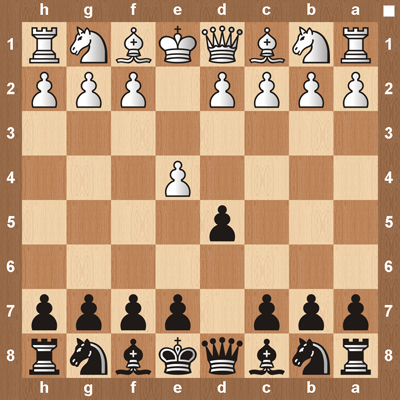All the King’s Horses, by Kurt Vonnegut, focuses on the story of a group of American soldiers, who are led by Colonel Kelly. The men, Kelly’s family, and two pilots were flying when their plane crashed somewhere “on the Asiatic mainland”. They were captured by a rogue communist leader, Pi Ying, who offered to play a game of chess with Colonel Kelly. He gave them a chance at freedom—if the Americans won, then they were set free, but if Pi Ying won, then every one of Kelly’s men would be executed. However, there is a catch: Kelly’s men are the chess pieces, and if any one of them gets captured, then they are immediately killed.

Welcome to the Monkey House, the collection that this short story appears in.
As someone who plays a lot of chess and is on the chess team, the story piqued my interest right from the title, which references two chess pieces: the king and the knight (which is in the shape of a horse). However, it is in the middle of the work that is particularly gripping. Vonnegut does a great job making you feel what the Colonel is feeling. When Pi Ying captures one of Kelly’s pawns, Vonngeut writes,
“Kelly’s calm was shattered, and with it the illusion of the game. The pieces in his power were human beings again….He was no more fit to make decisions of life and death than the rawest recruit…Another two minutes crept by as he struggled to force himself to be rational. ‘I can’t do it,’ he whispered at last. He slouched now” (5).
The tension, the shock, and the grief is palpable. You can see and feel how conflicted Kelly feels—he knows that he needs to play on with the game, or else every single person will die—yet each capture is directly responsible for the death of one of his men. (Vonnegut creates an even tenser moment later in the story, which I will not spoil here, but it’s not a hyperbole to say I was literally on the edge of my seat.)
From the start, Vonnegut draws comparisons between the game of chess and battle, writing “Pi Ying said that their fight against death would be no different, philosophically, from what all of them, except Kelly’s wife and children, had known in battle. In a cold way, it was true no different, philosophically” (1). Vonnegut suggests that commanders in battles in wars were just like players in chess—they both had little regard for each individual piece and were more focused on winning the overall battle or game. In chess, for example, capturing pawns is not only usually inconsequential, it is expected—yet chess players do not feel any sympathy for the pawn as it leaves the board.
(Side note: this theme of using people as pieces in a game of chess isn’t unique to this story—in one of the Harry Potter books, basically the same situation occurs, where Harry Potter’s friends are some of the pieces of a chess game.)
Vonnegut continues this analogy at the end of the story: “‘Unfortunately, the time and the place are up to you,’ said Colonel Kelly wearily. ‘If you insist on arranging another game, issue an invitation, Major, and I’ll be there’” (10). Here, he draws upon another analogy. Having experienced this victory firsthand, Colonel Kelly is wary of engaging in another battle (another chess match). However, it is impossible to avoid a battle forever, so if Major Barzov (a companion and observer of Pi Ying) wanted another match, then he could get one (in war, this would mean launching an attack). Vonnegut shows that the people who have experienced war, battle, and bloodshed, are generally the ones who want to avoid it; since these people have firsthand experience, they are the most reliable sources on whether war should be fought or not, so Vonnegut is making a powerful anti-war statement.
The author Magelinski uses the same line to conclude that “Vonnegut uses this story to criticize countries who are quick to go to war. He shows how war may start against a [sic] countries will, but they are too quick to forget the horrors that war brings.” This is arguably a stretch—it seems that Pi Ying was already set on having this battle, and this was well-thought out, rather than a split second decision. However, it is still reasonable to conclude that the story is a criticism of countries that go to war quickly, since the story shows the potential horrors of being at war through the lens of chess.

The Scandinavian defense, which was played in the story.
The chess aspects themselves are not the most accurate. The story doesn’t use modern chess notation (“Kelly pointed to the fourth square in the second row of the huge chessboard” (4), when modern notation would call this square d2), but I think this is a good thing for the story. It helps the story be comprehended more easily, without being bogged down on technical chess details. Also, as pointed out by a blogger, the opening moves used in the game are almost never played at the serious level. However, the focus of the story isn’t on the details of the chess game—nor should it be—it is on its gripping narrative and compelling message.
Bibliography:
“‘It Was the Narcotic of Generalship. It Was the Essence of War.” Kurt Vonnegut’s Short Story, ‘All the King’s Horses.’” Bibliophilopolis, 16 Dec. 2019, bibliophilica.wordpress.com/2010/10/14/it-was-the-narcotic-of-generalship-it-was-the-esence-of-war-kurt-vonneguts-short-story-all-the-kings-horses/.
Magelinski. Vonnegut Tutorial, 12 Apr. 2017, blogs.lt.vt.edu/magelinski/author/magelinski/.
